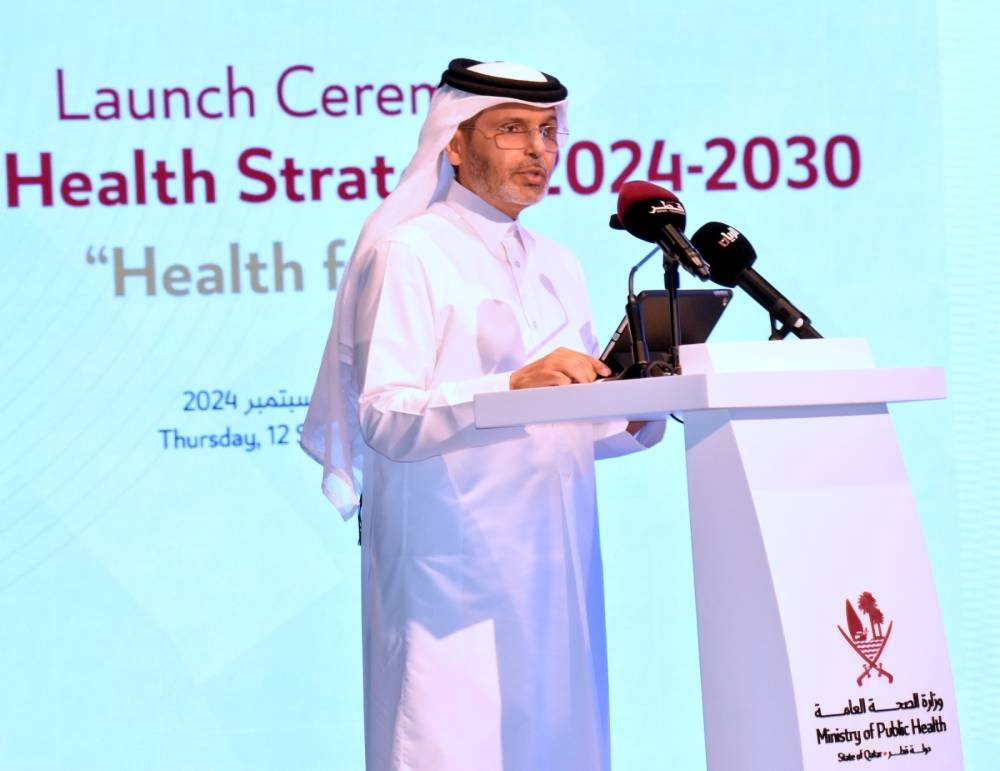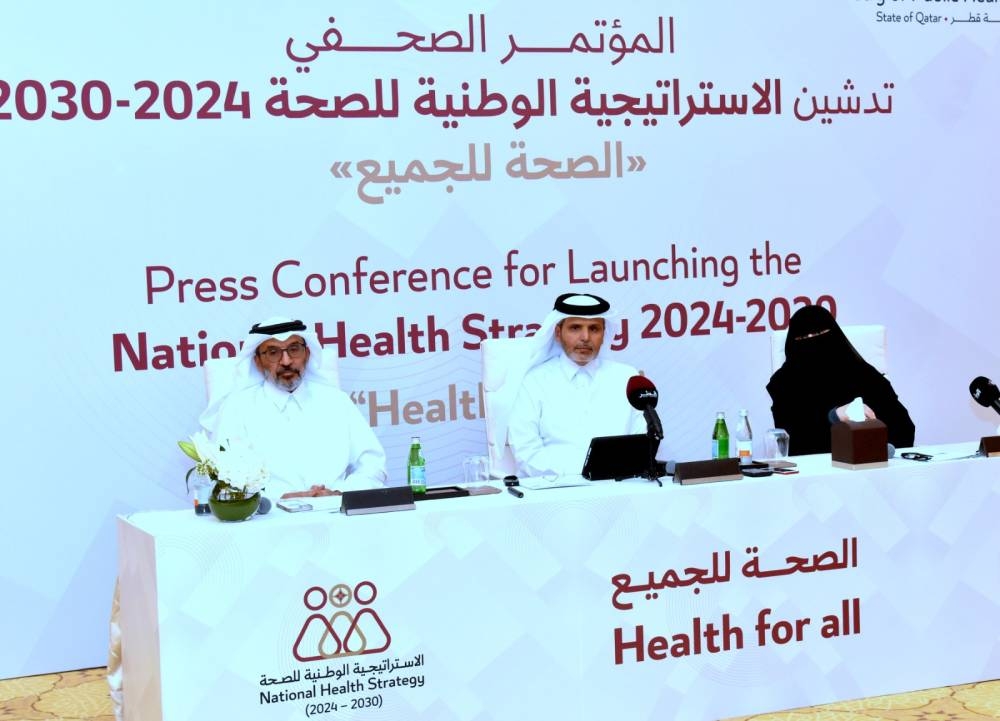Qatar
Qatar’s new health strategy aims to boost medical tourism
improve population health and patient experience/address current health sector challenges



Qatar’s third National Health Strategy 2024-2030, launched yesterday, aims to deliver on three strategic dimensions to address Qatar’s current health sector challenges across population health, service delivery and system efficiency.
Officials from the public healthcare sector told a press conference that the new strategy was the outcome of detailed deliberations over a long time.
They stressed that the strategy also aims to further advance the health system by expanding services and increasing specialised services, with a focus on making Qatar a medical tourism destination, as an initiative will be launched in the near future.
Dr Salih Ali al-Marri, assistant minister for health affairs, Ministry of Public Health; Dr Mariam Abdulmalik, managing director, Primary Health Care Corporation; and Dr Yousef al-Maslamani, deputy chief medical officer for clinical affairs, Hamad Medical Corporation, were present.
The officials spoke about the importance of the new strategy in achieving Qatar National Vision 2030 in enhancing the health and well-being of the population in Qatar, taking into account the need to involve the patient in designing an advanced health system that serves their needs.
Dr al-Marri said that within the three NHS-3 priority areas a set of 15 system-level challenges were identified.
They will be addressed by the delivery of 15 strategic outcomes, supported by a comprehensive set of initiatives that will support the required shifts and help realise the future state, over the next seven years.
The three priority areas are: Improved population health and well-being; Excellence in service delivery and patient experience and Health system efficiency and resilience.
Among the key outcomes of the “Improving Population Health and Wellbeing” priority are raising public health awareness, empowering patients and caregivers, proactive disease prevention and detection, and ensuring integrated health and well-being across all sectors. These outcomes are supported by significant initiatives, including universal vaccination coverage, occupational health, environmental health, and food safety.
Key outcomes under the “Excellence in Service Delivery and Patient Experience” priority include developing updated, comprehensive care models and standards across the entire healthcare system, as well as excelling in primary, community, secondary and specialised care. Important initiatives supporting these outcomes include the continuous improvement of population-specific services, quality of care and the Health Tourism Programme.
In the “Health System Efficiency and Resilience” priority, outcomes include excellence in health research and innovation, effective emergency preparedness and response, a skilled and efficient workforce, and a robust digital healthcare system supported by data-driven decision-making, strong governance and sustainable healthcare financing. Notable initiatives under this priority include cross-sector collaboration, enhancing public-private partnerships, workforce skills development, applied health intelligence and investment in biotechnology and medical security.
There is also a comprehensive communication plan to support the implementation of the strategy. The plan focuses on raising awareness among all stakeholders, ensuring continuous engagement with patients to enhance their participation in their healthcare journey, and improving patient satisfaction across all healthcare facilities. The strategy also prioritises patient experience, continuity of previous strategy projects, and supporting Qatar’s economic diversification agenda.

